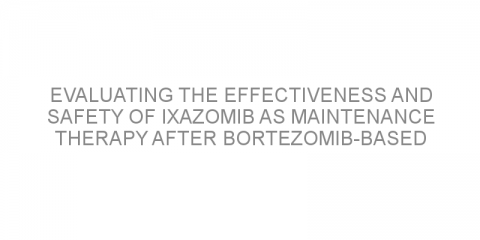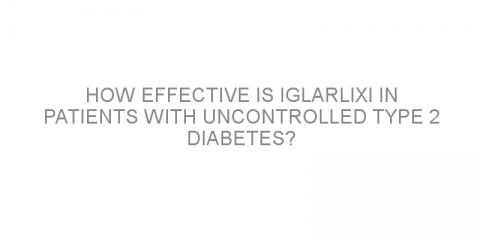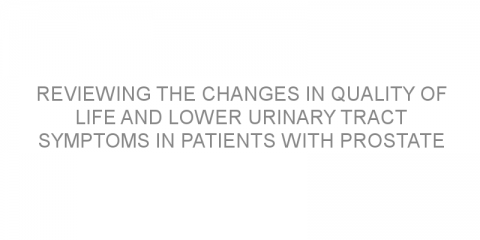In a nutshell This study explored the role of maintenance therapy after a second autologous hematopoietic cell transplant (AHCT2) in patients with multiple myeloma (MM). The data showed that maintenance therapy after AHCT2 was associated with better outcomes in these patients. Some background MM is commonly hard-to-treat. Many patients are treated...
Read MoreLibrary Item Posts on Medivizor
Recommendations for enhancing sexual rehabilitation for survivors of prostate cancer.
In a nutshell This study highlights psychosocial recommendations for survivors of prostate cancer (PCa) and their partners during sexual rehabilitation. The authors concluded that biopsychosocial programs are beneficial for providing educational support and psychosocial counseling to patients with erectile dysfunction in addition to existing biomedical...
Read MoreEvaluating the effectiveness and safety outcomes of durvalumab maintenance after chemoradiotherapy for unresectable stage 3 non-small-cell lung cancer.
In a nutshell This study evaluated the effectiveness and safety outcomes of durvalumab (Imfinzi) maintenance after chemoradiotherapy (CRT) in real-world patients with unresectable stage 3 non-small-cell lung cancer (NSCLC). The data showed that durvalumab maintenance after CRT was safe and showed good short-term survival outcomes in these...
Read MoreEvaluating the effectiveness and safety of ixazomib as maintenance therapy after bortezomib-based induction therapy in real-world patients with multiple myeloma.
In a nutshell This study evaluated the effectiveness and safety of ixazomib (Ninlaro) as maintenance therapy after bortezomib (Velcade)-based induction therapy in real-world patients with multiple myeloma (MM). The data showed that the outcomes of these patients in the real-world setting were good with manageable side effects. Some background...
Read MoreEvaluating the effectiveness of androgen receptor-targeted therapy plus radiotherapy in patients with metastatic castration resistant prostate cancer.
In a nutshell This study evaluated the effectiveness of radiotherapy (RT) plus androgen receptor-targeted therapy (ARTT) on oligo-progressive sites for the treatment of patients with metastatic castration-resistant prostate cancer (mCRPC). The data showed that RT on oligo-progressive sites was safe and effective in prolonging treatment with ARTT in...
Read MoreEvaluating the real-world safety and effectiveness of palbociclib and hormonal therapy in patients with advanced breast cancer.
In a nutshell This study investigated whether the combination of hormonal therapy and cyclin-dependent kinase (CDK) 4/6 inhibitor palbociclib (Ibrance) was effective in advanced breast cancer in a real-world practice. The authors found that this treatment has similar safety and effectiveness in these patients as shown in clinical trials. Also,...
Read MoreEvaluating the effectiveness of T-VEC after failure of immunotherapy in patients with unresectable metastatic melanoma.
In a nutshell This study evaluated the effectiveness of talimogene laherparepvec (Imlygic; T-VEC) after failure of immunotherapy for the treatment of patients with unresectable metastatic melanoma. The data showed that T-VEC after the failure of immunotherapy is safe and effective in these patients. Some background Melanoma is an aggressive type of...
Read MoreHow safe and effective is epcoritamab for the treatment of patients with relapsed or refractory B-cell non-Hodgkin lymphoma?
In a nutshell The authors investigated the safety and effectiveness of epcoritamab (DuoBody-CD3xCD20) for the treatment of patients with relapsed or refractory (r/r) CD20+ B-cell non-Hodgkin lymphoma (B-NHL). The study showed that this medication has promising effectiveness and safety in these patients. Some background B-NHL is a type of...
Read MoreHow effective is iGlarLixi in patients with uncontrolled type 2 diabetes?
In a nutshell This study evaluated the effectiveness of insulin glargine 100U/ml (iGlar; Lantus) and lixisenatide (Lixi; Lyxumia) combined (iGlarLixi; Soliqua) compared with each of the two drugs alone in patients with type 2 diabetes (T2D) that was uncontrolled with 2 anti-diabetic oral drugs. The data showed that iGlarLixi...
Read MoreDaratumumab maintenance therapy after autologous stem-cell transplant in patients with newly diagnosed multiple myeloma.
In a nutshell This study investigated the use of daratumumab (Darzalex) as maintenance therapy following autologous stem-cell transplant (ASCT) in patients with newly diagnosed multiple myeloma (NDMM). The data showed that maintenance therapy with daratumumab resulted in significant improvements in outcomes compared to observation only in patients that...
Read MoreReviewing the changes in quality of life and lower urinary tract symptoms in patients with prostate cancer following prostate surgery
In a nutshell This review explained the changes in lower urinary tract symptoms (LUTS) and quality of life (QoL) that occurred over time in patients with prostate cancer following radical prostatectomy (RP; removal of the prostate). The data showed that 6 to 12 months are required for LUTS improvement after RT. Some background Patients with prostate...
Read MorePreparing the uterus for frozen embryo transfer
In a nutshell This study compared two medication protocols to prepare the uterus for frozen embryo transfer (FET). It found that down-regulation ovulation-induction (DROI) led to higher pregnancy rates than a modified natural cycle (mNC). Some background In vitro fertilization (IVF) is an infertility technique in which eggs are collected and...
Read More















